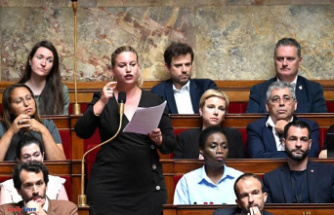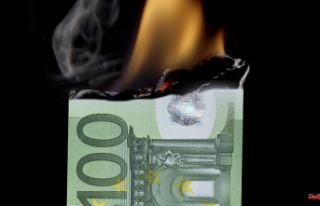The five consumed tubes of toothpaste per year and head indicate good care. But of course only if a good paste gets on the brush. And with the huge selection, many people make a mistake. Some of the most expensive fail the product test.
Nobody can avoid brushing their teeth. Otherwise there is a risk of caries, toothache, unsightly teeth or, at least as badly, bad breath and loneliness. So it is important to grab the brush twice a day and to provide it with the right cleaning agent. Warentest has set itself the task of sifting through the supply jungle of corresponding goods and examining 31 universal toothpastes. She also reveals which of them are top choices.
All promise to offer complete protection for teeth and gums and, above all, protection against tooth decay. But by no means all keep their promises. The evaluation of the test shows that among the best toothpastes there are also very cheap ones. However, some of the most expensive fail. The prices for the products are between 0.44 and 8 euros per 100 milliliters. Creams were also differentiated under the aspect of "with gentle abrasion" for sensitive teeth and "with stronger abrasion" for non-sensitive ones.
Result: 5 toothpastes are "very good", 11 products are "good" or "satisfactory" and 4 are "poor".
Let's start with the test losers. Because although numerous studies show the protective effect against tooth decay, some suppliers do not add fluoride - especially natural cosmetics manufacturers. The fear of fluoride is unfounded. According to the studies, it is not harmful in the amounts usually consumed when cleaning. 4 out of 31 pastes in the test do not protect enough against tooth decay. The "Ajona Medical Toothpaste Concentrate" (6.75 euros), the "Bioniq Repair Toothpaste" (6.35 euros), the "Sante Dental Med Tooth Gel Vitamin B12 fluoride-free" (7.95 euros) and the "Weleda Calendula Toothpaste". " (5.65 euros) were not even further tested, but received a flat rate "poor" from Warentest.
Many manufacturers color their pastes white with the pigment titanium dioxide. But the material has fallen into disrepute. It will be banned in food across the EU from August - as it may damage the genetic material if it gets into the body. Since toothpaste can be swallowed when brushing and titanium dioxide is unnecessary for dental care, Stiftung Warentest recommends pastes without the pigment for reasons of preventive consumer protection. Unfortunately, the substance can still be found in 21 products - which led to a devaluation of one note.
Now it gets happier. Toothpaste with little abrasion is advisable for sensitive teeth: “Kaufland Bevola” for 0.44 euros and “DM Dontodent” for 0.60 euros are very good and cheap. The "Signal Bio" (2.65 euros) removes discolouration best, but according to the supplier it was taken off the market. With insensitive teeth, the abrasion may be higher: "Very good" are "Meridol gum protection" (4.40 euros) and "Oral-B Professional Pro-Repair Extra fresh" for 5.20 euros.












